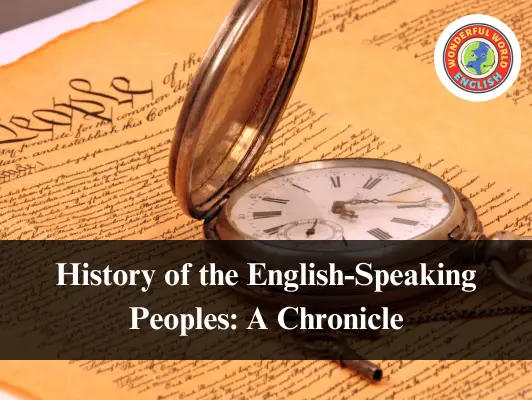Contents
Toggle
Meet David De’ Ath, founder, editor, and writer at Wonderful World English. With his extensive background as an English teacher, David provides valuable insights and practical tips on ESL for students and teachers alike.
The examination of the English-speaking peoples’ past provides an expansive narrative, tapping into a rich tapestry that begins in antiquity and winds its way through centuries of growth and change.
It encompasses the roots of the English language, the spread of its speakers through colonization and migration, and the rise and establishment of major democracies.
The story of English-speaking civilizations is not just about territorial expansion and political might; it also covers how these societies have interacted with others, engaged in conflicts, and developed culturally and socially across different epochs.
One cannot discuss this history without recognizing the significance of Winston S. Churchill’s comprehensive work, “A History of the English-Speaking Peoples.”
Churchill’s historical account, which spans four volumes, offers remarkable insights into the shaping forces of the English-speaking world.
His contributions to the historiography of the English language’s spread provide not only an account of British and American dominance on the global stage but also an exploration of how leadership and key figures have influenced the course of history.
It is a testament to transformation, detailing how innovations and progress have continually redrawn the contours of the English-speaking world.
Key Takeaways
- The English-speaking peoples’ history is rich with cultural, social, and political development.
- Churchill’s work remains a seminal resource for understanding the evolution of English-speaking civilizations.
- Leadership and innovation have been pivotal in shaping the global impact of English-speaking nations.
Origins of the English-Speaking World
The history of the English-speaking world finds its roots in ancient conquests, alliances, and pivotal reigns that collectively fashioned the modern tapestry of nations.
Early History of Britain
Britain’s story begins long before written records, but it is the Roman conquest in 55 BC that marks a significant turning point.
The Romans introduced Latin, from which the English language would later borrow heavily.
After the Roman withdrawal, waves of Germanic tribes such as the Angles, Saxons, and Jutes settled in Britain, bringing with them new languages that would evolve into Old English.
The landscape of early Britain was a mosaic of tribal kingdoms and varying influences, with Viking incursions in the later periods adding further cultural and linguistic complexity.
It was during these early centuries that the seeds of the English language and identity were sown, with England emerging as a distinct entity by the 10th century.
The British Isles and the Birth of Nations
The British Isles have been a crucible where different cultures and political forces melded to forge new nations.
The formation of the Kingdom of England was a process marked by unifications and conquests, leading to a more centralized governance under figures like Alfred the Great who was pivotal in the defense against Viking invasions.
The Tudor period, beginning with Henry VII’s reign in 1485, brought stability after the upheaval of the Wars of the Roses.
Henry VII’s diplomacy and marriage alliances laid the groundwork for the political entity of Britain and the English-speaking peoples.
This era set the stage for the further spread of English influence and language, as Britain’s reach began to extend beyond its borders.
Related: Mastering Old English: A Beginner’s Guide
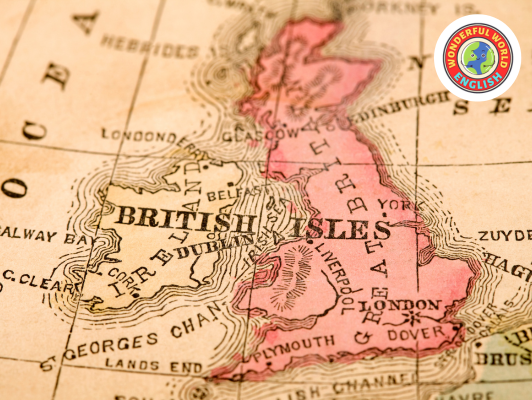
Expansion and Empire
The British Empire’s unprecedented expansion marked an era of colonization and transition; its territories spanned across continents, evolving into a Commonwealth of self-governing nations.
The Growth of the British Empire
The British Empire’s expansion was a significant historical development, starting with the colonization of territories in North America and the Caribbean in the late 16th and early 17th centuries.
By the 19th century, Great Britain had established itself as a dominant global power with colonies in Australia, Canada, New Zealand, and parts of Africa, including South Africa.
- Crimean War (1853-1856): A pivotal conflict where Britain’s military prowess was displayed.
- Australia: Penal colonies established in the late 18th century grew into prosperous states.
- Canada: Gained a new political identity with the formation of the Dominion of Canada in 1867.
The British Empire’s influence extended to various economic, political, and social aspects of life in these colonies, driven by trade, the spread of the English language, and legal systems based on English common law.
From Colonies to Commonwealth
Post-World War I was a transformative period for the British Empire.
The concept of the Commonwealth began to take shape as former colonies attained self-government while acknowledging the British monarch as the head of state.
- New Zealand and South Africa: Both achieved dominion status, gaining autonomy while retaining symbolic ties to Britain.
- United States: Though it broke away earlier, its success as an independent nation demonstrated the potential of former British colonies.
By the mid-20th century, the transformation of empire to Commonwealth signified a new chapter where cooperative associations between independent countries prevailed over colonial rule.
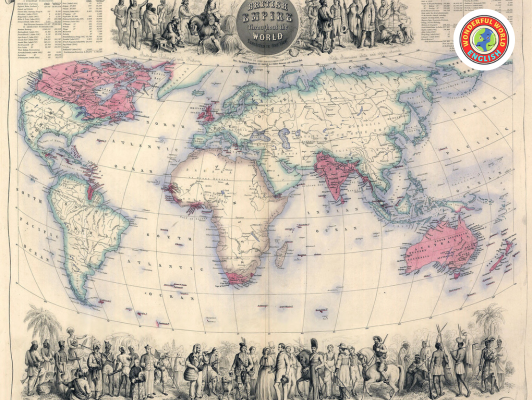
Governance and Democracy
The evolution of governance in English-speaking societies is marked by the establishment of constitutional monarchy and the development of a robust parliamentary system, which together laid the foundation for modern democracy.
Development of Constitutional Monarchy
English governance underwent a significant transformation with the advent of constitutional monarchy.
It began during the reign of Elizabeth I, who skillfully managed her relationship with the Parliament, setting the stage for a more balanced distribution of power.
The definitive shaping of constitutional monarchy, however, came much later under the lengthy and stable reign of Queen Victoria.
During this era, the British Empire expanded, and the Queen became a symbol of continuity and statehood, even as real political power shifted increasingly to the elected Parliament.
The English Bill of Rights in 1689 was a milestone, constraining the monarch’s authority and conferring powers on Parliament.
This document firmly placed restrictions on the crown, stating clear parliamentary protocols and emphasizing the significance of a regular meeting of Parliament.
The monarchy’s role became more ceremonial over time, with the actual governance of the country falling to Parliament and the Prime Minister.
Parliamentary System and English Democracy
The Parliamentary system in England is a pinnacle achievement in the evolution of democratic institutions.
Its two-house structure—the House of Commons and the House of Lords—is emblematic of English governance, promoting debate, legislation, and representation.
- House of Commons: Elected officials represent the citizenry, making it a direct channel for public will.
- House of Lords: Comprising primarily of appointed members, it acts as a revising chamber with long-standing expertise.
By the late 19th and early 20th centuries, electoral reforms expanded the franchise, blending the principles of English democracy with the workings of the Parliament.
The introduction of regular electoral processes ensured that the composition of the House of Commons would reflect the electorate’s voice, solidifying the influence of citizens in governance.
Parliament’s supremacy was affirmed through its control over the budget and laws, as well as its ability to hold the executive to account.
These checks and balances are central to ensuring that government remains a true reflection of the population’s interests.
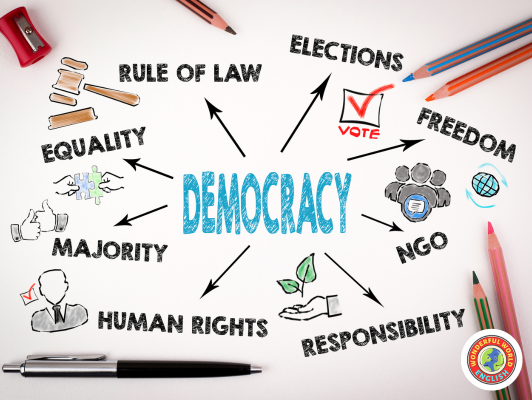
Wars and Conflict
The conflicts such as the American Civil War and both World Wars have significantly shaped the course of history for English-speaking peoples.
Their impact resonates in the political, cultural, and social spheres across countries including the United States, Germany, France, and Russia.
The American Civil War and Its Impact
The American Civil War (1861-1865) was a pivotal moment in the history of the United States, leaving a legacy that continues to influence the nation.
Fought mainly over issues of slavery and states’ rights, the war resulted in the emancipation of slaves and set the stage for Reconstruction.
The consequences of the Civil War proved monumental, reshaping American society and demonstrating the strength of federal government.
| Key Outcomes of the American Civil War |
|---|
| – Abolition of slavery |
| – Preservation of the Union |
| – Legal changes, including the 13th Amendment |
| – Economic turmoil in the South |
The conflict also catalyzed advancements in military technology and tactics, influencing later conflicts.
France, observing the conflict, learnt about modern warfare tactics and the use of railroads, and this insight proved crucial for future confrontations, including with Germany and during the reign of Napoleon III.
World Wars and Global Strife
Germany was a central player in World War I (1914-1918) and World War II (1939-1945), which involved most of the world’s nations, including all of the great powers, eventually forming two opposing military alliances: the Allies and the Axis.
These wars drastically altered the global balance of power, leading to the decline of colonial empires and the emergence of the United States and the Soviet Union as superpowers.
Napoleon’s conquests had earlier sown the seeds for the formation of modern European states, influencing both world wars through the reshaping of borders and the instilling of nationalist sentiments.
Related: Did Napoleon Speak English? – Everything you Need to Know
| Global Consequences of the World Wars |
|---|
| – Redrawing of international borders |
| – Rise of the US and USSR as superpowers |
| – Creation of the United Nations |
| – Start of the Cold War |
The Second World War catalyzed historic collaborations such as the Atlantic Charter, a pivotal policy statement that defined the Allied goals post-war.
The most catastrophic global conflict in history, the fight against Nazi Germany permanently altered the geopolitical landscape and directly led to the Cold War tension between the United States and Russia, formerly the Soviet Union.
These wars have indelibly marked the collective consciousness and defined the contours of the modern world.
They not only redefined nations but also ushered in an era of unprecedented technological advancement and international cooperation.
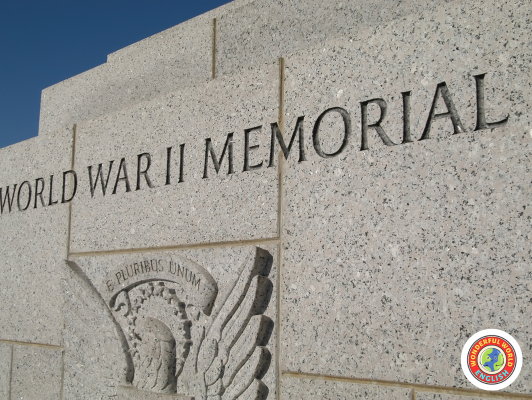
Cultural and Social Evolution
The progression of English-speaking societies has been significantly shaped by their cultural expressions and governing systems.
This evolution nurtured a rich tapestry of literary works and led to the development of legal frameworks that would influence nations across the globe.
Literature and Artistic Expression
The English-speaking world has exerted a profound influence on literature, with books such as Winston Churchill’s A History of the English-Speaking Peoples being seminal works.
They’ve chronicled the cultural identity and narrative of an expansive community bound by language.
British literary figures like Shakespeare have not only contributed to the arts within English-speaking cultures but have also become integral to global literary education.
The artistic expression in these societies encompasses an array of genres, exhibiting the cultural diversity and creativity of its people.
For example, American literature evolved, showcasing distinct voices through different movements, each reflecting the societal changes and shaping the nation’s identity.
Legal and Political Institutions
The legal and political institutions of English-speaking nations are a cornerstone of these societies.
They have evolved from the Magna Carta, establishing a legacy of democratic principles and the rule of law.
American constitutionalism further pushed these ideas, setting precedents for individual rights and the architecture of government.
Institutions in these nations have been influential in crafting modern political discourse, raising the standard for governance and civil liberties globally.
Courts within the English-speaking world, deeply rooted in Common Law, became the blueprint for justice systems in numerous countries, reflecting the tradition and adaptability of these legal frameworks.
You can click the link or the image below to check out Churchill’s A History of the English-Speaking Peoples.
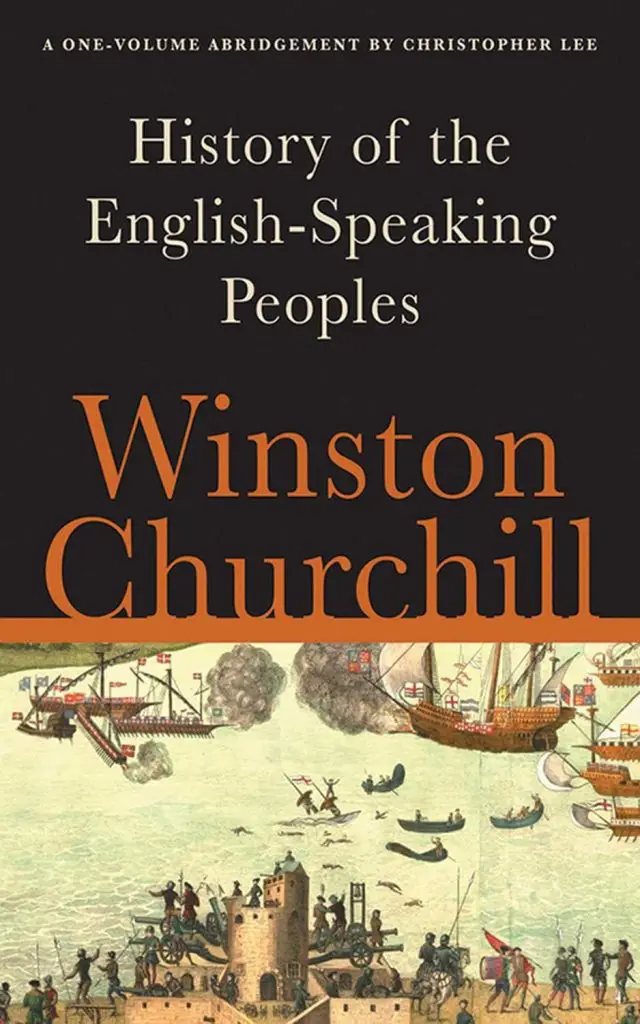
Influential Figures and Leadership
Leadership and vision are the backbones that have shaped the history and direction of English-speaking peoples.
Certain individuals stand out for their roles in steering this history.
Winston Churchill’s Role
Winston Churchill, the venerable British leader, is intrinsically linked to the 20th century’s narrative of the English-speaking world.
Serving as the First Lord of the Admiralty prior to the First World War and twice as Prime Minister, he guided Britain through periods of profound crisis and change.
His determination during World War II cemented his place as a figure of resilience and leadership.
Beyond his political career, Churchill embarked on a literary quest to chronicle the journey of English-speaking peoples.
Churchill began writing “A History of the English-Speaking Peoples“ during the 1930s, but its publication was delayed due to his governmental duties and the outbreak of World War II.
The work eventually spanned four volumes, covering events from Julius Caesar’s invasions of Britain to the early 20th century.
His historical works provided not just a record but also a source of inspiration and analysis for future generations.
Statesmen and Visionaries
Beyond Churchill, there have been numerous statesmen and visionaries who have shaped the course of the English-speaking peoples.
These figures range from monarchs like Queen Victoria, whose reign oversaw an unprecedented expansion of the British Empire, to American presidents whose leadership was pivotal in defining the United States’ role on the global stage.
Andrew Roberts, a contemporary historian, picked up Churchill’s mantle and furthered the examination of the English-speaking world’s past.
His sequel to Churchill’s original volumes takes the narrative into the 20th century and beyond, elaborating on the United States’ emergence as a world power and the ongoing developments within the commonwealth and former British colonies.
The continuous thread connecting these leaders is the blend of vision and governance, which has had a lasting impact not only on their nations but on the broader tapestry of global relations and the spread of democratic ideals.
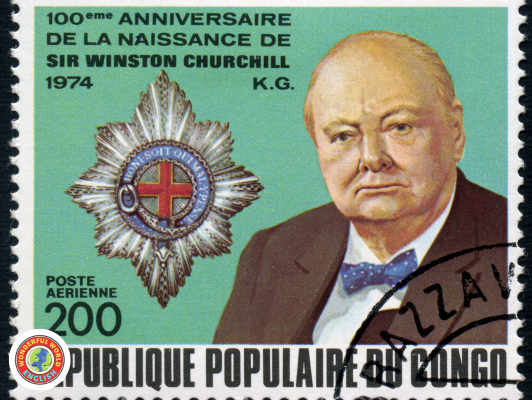
The Age of Progress and Innovation
During the transitional period of the late 18th and early 19th centuries, two remarkable phenomena reshaped the global landscape: colonization established the New World as a prominent force, and technological breakthroughs propelled societal strides in connectivity and industry.
The New World and the New Century
The New World, notably the United States, manifested destiny as a concept to expand across the continent, cultivating a new age of exploration and settlement.
With the conclusion of the American Revolution, the United States emerged as one of the Great Democracies.
The country’s constitution and governance model became a template for future democracies worldwide.
- 1776: Declaration of Independence
- 1789: Ratification of the U.S. Constitution
In parallel, territories in North America and beyond continued evolving into sovereign nations, fostering ideals of self-governance and liberty.
Technological Advancements and Globalization
The Age of Revolution was not only political but also industrial.
Astounding technological advancements of the 19th century, such as the steam engine and the telegraph, shrunk distances and facilitated international communication and trade.
- Inventions:
- Steam Engine (James Watt)
- Telegraph (Samuel Morse)
The introduction of the steam locomotive into public use marked a significant leap in transportation, connecting distant locales and enabling faster movement of people and goods.
Through innovation and industrialization, nations linked more closely, setting the stage for an interconnected and interdependent global economy.
The Great Democracies, especially those in Western Europe and the Americas, became hotspots of progress, leading the world towards a new epoch of advancement.
For a modern-day map of the English speaking world, check out the link below!
Related: Map of Countries That Speak English: The Guide
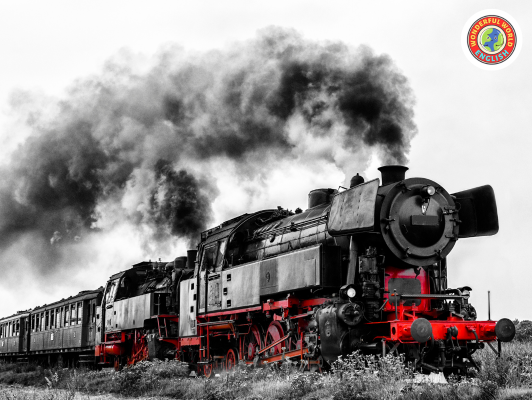
English-Speaking Peoples on the World Stage
English-speaking nations have historically played pivotal roles in shaping global politics, economies, and cultures.
Their journeys from fledgling communities to influential entities spotlight significant trends and consequences in world history.
Emergence as World Powers
The ascendancy of English-speaking nations to global prominence had varying origins, but a shared language and cultural underpinnings often linked their paths.
The British Empire established the earliest template, leveraging its naval dominance and industrial innovation post the Industrial Revolution.
By the 18th century, the impact of the French Revolution and Napoleonic Wars further highlighted Britain’s standing as a pre-eminent world power, influencing European politics and establishing colonies worldwide.
In parallel, the United States emerged from its colonial status to become a world power.
The country’s expansion and its role in international conflicts such as the World Wars underlined its growing influence.
English-speaking nations, especially the UK and the USA, have often found themselves intertwined geopolitically and culturally, shaping the World Stage through both conflict and cooperation.
Contemporary Global Impact
Today, the global impact of English-speaking peoples remains extensive, seen in political, economic, and cultural spheres.
The English language itself has become a tool of international communication, thereby amplifying the voice of nations like the United States, the United Kingdom, Canada, Australia, and others on the World Stage.
In the realm of international policy, these countries often spearhead critical discussions in the United Nations and other global forums, addressing issues ranging from climate change to economic policies.
They continue to exert soft power through media and popular culture, and their economic contributions are substantial, evidenced by their combined GDPs and involvement in global trade networks.
These nations’ approaches to global challenges and their leadership or partnership in international coalitions play significant roles in directing the course of world history and contemporary affairs.

Conclusion
The history of English-speaking peoples is a rich tapestry woven from centuries of cultural, social, and political evolution.
It highlights the spread of the English language, the rise of major democracies, and the impact of key figures and events that shaped global history.
Winston Churchill’s “A History of the English-Speaking Peoples” remains a seminal work that offers invaluable insights into this narrative, detailing the transformation from early conquests to modern governance.
The evolution of governance, marked by the development of constitutional monarchy and robust parliamentary systems, laid the foundation for modern democracy.
The conflicts, such as the American Civil War and both World Wars, played significant roles in shaping these societies and their global influence.
The progression of English-speaking societies has also been significantly influenced by their cultural expressions, literary contributions, and legal frameworks, which have left a lasting impact worldwide.
Leadership and vision have consistently been at the forefront, with figures like Winston Churchill and Queen Victoria steering the course of history.
The age of progress and innovation further propelled these nations into global prominence, with technological advancements facilitating connectivity and trade.
Today, the English-speaking world continues to exert a substantial influence on global politics, economies, and cultures, reinforcing the importance of understanding this historical narrative in shaping our contemporary world.
We hope you find value in this information; you can contact us if you require any support.
Have a wonderful day!
Image Attribution: All images licensed via canva.com

